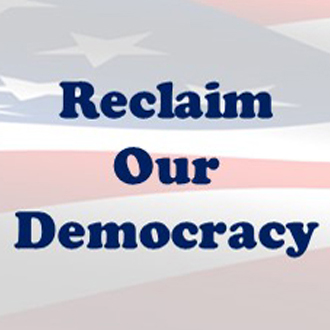1.) Do you feel the 1976 Buckley v. Valeo Supreme Court decision stipulating money is equivalent to free speech was the correct decision – why or why not?
The Supreme Court wrongly decided Buckley v Valeo. It was incorrect to hold that money is equivalent to free speech and that regulating the spending of money in politics constituted a limit on the potential volume of expression of free speech or the ability to associate. To quote Justice Stevens in 2000, money is property, it is not speech. I do believe that a 28th Amendment should follow Justice Stevens, rebut Buckley, and state that money is not speech. I also believe that in addition to that erroneous core assumption within the Buckley decision, the change of circumstances in the decades since Buckley whereby wealth has concentrated among fewer and fewer Americans means that this principle that money equals speech cannot be allowed to continue as it directly leads to the concentration of the meaningful potential for political speech to a smaller and smaller number of Americans. In effect, while Buckley itself holds that government must avoid limiting the potential volume of political speech, the actual effect of the decision has been to in fact limit the number of Americans who can (i.e. have the resources) to engage in meaningful political speech.
2.) Do you feel the 2010 Citizen’s United Supreme Court decision which, among other things, deregulated limits on independent expenditure group spending for (or against) specific candidates was the right decision – Why or why Not?
The Supreme Court also wrongly decided Citizens United, as this decision proceeded on the core erroneous holding from Buckley— that money equals speech. The regulation of money and campaign finance limits is not a First Amendment issue for the campaign contributors, it is an anti-corruption issue, and a matter of the First Amendment rights of all the non-wealthy citizens who do not contribute to political campaigns to have equal First Amendment right of political speech not just in principle but in potential effect in the political process.
3.) Do you feel PAC money many politicians accept is essentially a form of legalized bribery – Why or Why not?
Not only PAC money, but *all* campaign contributions are essentially a form of legalized bribery— the only difference is a matter of degree and the extent to which the contributions distort the political process. Whether consciously or subconsciously, all contributions at any level create a sense of debt in the mind of a candidate and therefore distort governance. The damage is increased when the donations represent the narrow interests of an issue or business-focused PAC. The damage is further increased when a candidate receives the majority of their contributions from PACs or wealthy individuals or spends a significant time raising such funds. This will distort and frame the prioritization of issues for the candidate based on the issues articulated by an increasingly small donor class and not on the common good and the interests of the overwhelming majority of people who are working and middle class and do not contribute to campaigns. There is some mitigation when campaigns— such as, in modesty, mine— raise the majority of their contributions from donations of less than $35, and accept no corporate PAC contributions— but the current system taints us all, to admittedly varying degrees.
4.) What especially, if anything, should be done to curtail the effects of dark money donated anonymously to non-profits in unlimited quantities to influence elections and ballot questions?
Beyond the reforms delineated above and below, I am in favor of mandatory disclosures of all donors to non-profits who engage in any sort of politically related expenditure— to include “issue” advocacy as well as directly promoting the success or failure of a candidate or ballot question. Failure to disclose all donors should be grounds for revoking a non-profit entitys tax-exempt status, and disclosure of the source of funds should be mandatory at the time of the gift of any funds.
5.) What specifically, if anything, would you like included in a 28th Amendment designed to mitigate the effects of campaign finance abuse?
I believe a 28th Amendment must be a comprehensive anti-corruption and democracy promotion reform. A 28th Amendment should state that money is not speech, it is property, and that corporations are not people, but legal constructs. A 28th Amendment should ban all PAC and SuperPAC contributions to political candidates, party committees or any other entity. Ideally, a 28th Amendment would also ban all individual campaign contributions and mandate a system of publicly funded elections at all levels of government and guarantee as a matter of law an equal right to both the opportunity and capacity for political speech as a citizen and as a candidate for office— this being to ensure these systems are not underfunded. I would use the 28th Amendment to combat gerrymandering by invoking Congress’s power to regulate the admission of its members, thereby justifying the inclusion of a provision that Congress will only seat U.S. House Representatives whose states have drawn their Congressional districts via an independent non-partisan commission— de facto banning the gerrymandering of Congressional districts.
Lastly, do you support and are you willing to sign the following American Promise Pledge to work towards a constitutional amendment to implement more permanent campaign finance reforms?
I do support the pledge and have already signed it. Not only that, but I am the first candidate in our MA-3 race— and despite my call for other candidates to follow me, I am still the only candidate that has signed on as a “Candidate With a Contract” (https://
